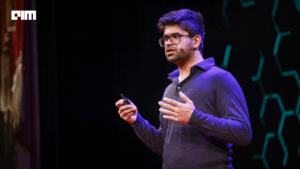Harper, the AI Agent built by Redwood City-based startup Wisq, interprets labor laws, enforced policy guardrails, and surfaces risks before they escalate. In a single month, they claim, it saves each HR team member over 35 hours of manual work. This is potentially a massive time save for HR teams that spend nearly 80% of their time on service delivery tasks.
Founded in 2022 by Glint alumni and led by CEO Jim Barnett, Wisq has now raised a total of $55 million, including a recent $15 million round from Norwest Venture Partners, Shasta Ventures, and True Ventures, to accelerate what it calls the “Agentic Era” of HR: a future where domain-specific AI agents serve as trusted collaborators.
Wisq’s Expanding Product Strategy
Their core product, Harper, is marketed as the world’s first AI HR Generalist. Built on the company’s proprietary large language model, HRLM, Harper is designed to handle high-volume, policy-heavy HR tasks autonomously, answering questions about benefits and identifying risk in employee-manager relationships. Its remit includes tasks traditionally offloaded to junior HR staff or routed through slow-moving ticketing systems.
HRLM was trained specifically for the regulatory and interpersonal complexity of HR environments. The company built a dedicated benchmark, Hurdle, to test Harper’s effectiveness on HR-specific tasks, including performance reviews, policy interpretation, and leave eligibility. According to Wisq, HRLM performs on par with top-tier reasoning models such as OpenAI’s o3, but with dramatically lower latency and cost.
“Generic models hallucinate in ways HR can’t afford,” said CTO and co-founder Chih-Po Wen in a company blog post detailing the rationale behind building HRLM. “Accuracy, nuance, and cost are all non-negotiables in this space.”
Wisq reports that Harper resolves over 80% of routine HR queries autonomously, reducing operational workload while maintaining policy compliance. Features in development include automated employee check-ins, legal-aligned case intake for employee relations, and proactive policy diagnostics.
Wisq is Enterprise First
Wisq’s approach is unapologetically enterprise-first. While consumer-facing chatbots and HR tech often focus on user interface design or engagement scores, Wisq is building for institutional complexity: overlapping regulations, highly sensitive information, and deeply varied corporate cultures.
The product’s initial focus was AI-powered coaching, informed by Barnett’s earlier work at Glint, an employee engagement analytics company acquired by LinkedIn in 2018. But early customers requested a broader scope, coaching not just for managers but for all employees, and eventually operational support for HR itself. This led to the development of Harper and HRLM.
“Less than one percent of employees have access to a coach,” Barnett told the Ed on the Edge podcast earlier this year. “We wanted to give every employee access to a good coach, and we realized that doing so required helping HR first.”
Infrastructure on Par With Large Models
HRLM was trained using a distillation process, where a smaller model learns from the behavior of a much larger one. Wisq pairs this approach with a proprietary test-time compute algorithm that adjusts how the model allocates computational resources when generating responses. According to the company, this enables HRLM to match the performance of far larger models at a fraction of the cost: an essential factor for enterprise buyers with usage-based pricing concerns.
“On problems where a smaller base model attains non-trivial success rates, test-time compute can be used to outperform a 14× larger model,” noted Wen, citing a 2024 DeepMind paper.
This infrastructure-first approach has allowed Wisq to differentiate itself from AI HR tools that wrap GPT APIs or focus solely on surface-level automation. By controlling the stack, the company claims it can move faster and build safer, more accountable tools for regulated environments.
Barnett has been explicit that Wisq is not a replacement for human HR departments, but rather an enabler. The company’s pitch to customers hinges on the idea that AI teammates like Harper allow HR professionals to focus more on strategic planning, workforce development, and culture: areas that traditional software rarely touches.
“We aren’t setting out to replace the human side of HR,” Barnett wrote in a recent company blog post. “We’re setting out to amplify it.”
The latest funding round will support further investment in the platform, expansion of engineering and go-to-market teams, and refinement of HRLM’s capabilities in areas like risk assessment and policy enforcement. The company is also hiring across platform engineering and AI research roles, signaling its intent to remain a product-led organization.
As AI becomes a more visible layer in enterprise operations, Wisq is betting that domain-specific intelligence (not just automation) will become a competitive edge. Whether that proves true will depend on how well the platform scales across diverse customer environments, how it measures ROI over time, and how rigorously it can maintain its claims of speed, accuracy, and compliance.











